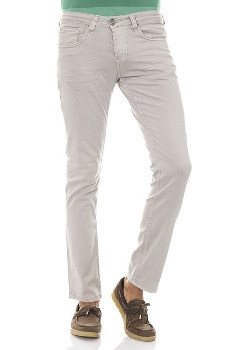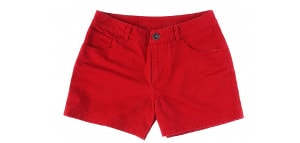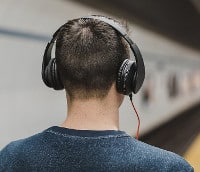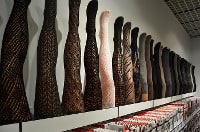Certain English nouns only have a plural form. The form is always plural. Never singular.
There are 3 types of nouns where the form is always plural:
- Certain articles of clothing.
- Certain tools or instruments.
- Other types.
Let’s look at each type in detail.
Certain articles of clothing
The following articles of clothing only have a plural form:
trousers
knickers
pyjamas
shorts
tights
pants
Examples:

I like your trousers. ![]()
I like your trouser. ![]()

Where are my shorts? ![]()
Where are my short? ![]()
Where is my short? ![]()
Certain tools and instruments.
The following tools and instruments only have a plural form:
headphones
scissors
sunglasses
binoculars
glasses
Examples:

Can I borrow your headphones? ![]()
Can I borrow your headphone? ![]()

Where did you buy your sunglasses? ![]()
Where did you buy your sunglass? ![]()
“pair of”
We use the following structure for ONE unit (singular) of the clothes and tools previously mentioned:
“pair of” + noun
Examples:
I need a pair of shorts. ![]()
I need a short. ![]()
I need a shorts. ![]()

I only have one pair of glasses. ![]()
I only have one glass. ![]()
I only have one glasses. ![]()
“pairs of”
We use the following structure for several units (plural):
“pairs of” + noun
Examples:

I am going to buy 3 pairs of shorts. ![]()
I am going to buy 3 shorts. ![]()

Here are lots of pairs of tights. ![]()
Other nouns with only a plural form
belongings
Meaning: Personal things that belong to you. (bag, hat, glasses, scarf)
Example:
Teacher: Do not leave your belongings in the classroom.
savings
Meaning: Money in your bank account. You are saving the money for the future.
Example:
I spent my savings on a new car.
clothes
Meaning: General word for a collection of articles of clothing.
Example:
His clothes are dirty.
stairs
Example:
To go to the first floor, you can take the stairs.
More lessons
IELTS complete guide (WITH EXAMPLE QUESTIONS)
Past continuous tense – English grammar lesson
Countable and uncountable nouns | English grammar
Plural forms of English nouns
Modal verb COULD – Form, use and meaning
Private online English lessons


Zulfiqar says
Your Site is really fantastic. I cannot afford your fee , otherwise your way of teaching is excellent.
Nandani says
Thanks, I took many nouns from different websites but I found your best one!!!!!
Kunal says
Noun that are used in always plural from
Emmanuel P. Suah says
Your site is a great resource for teachers- especially non-native speakers.
I especially enjoy the differences between standard British English and standard American English in many of your lessons.
I wish I could afford to pay for some of your online programs!
I have a burning desire to learn the English language with references to both national standards